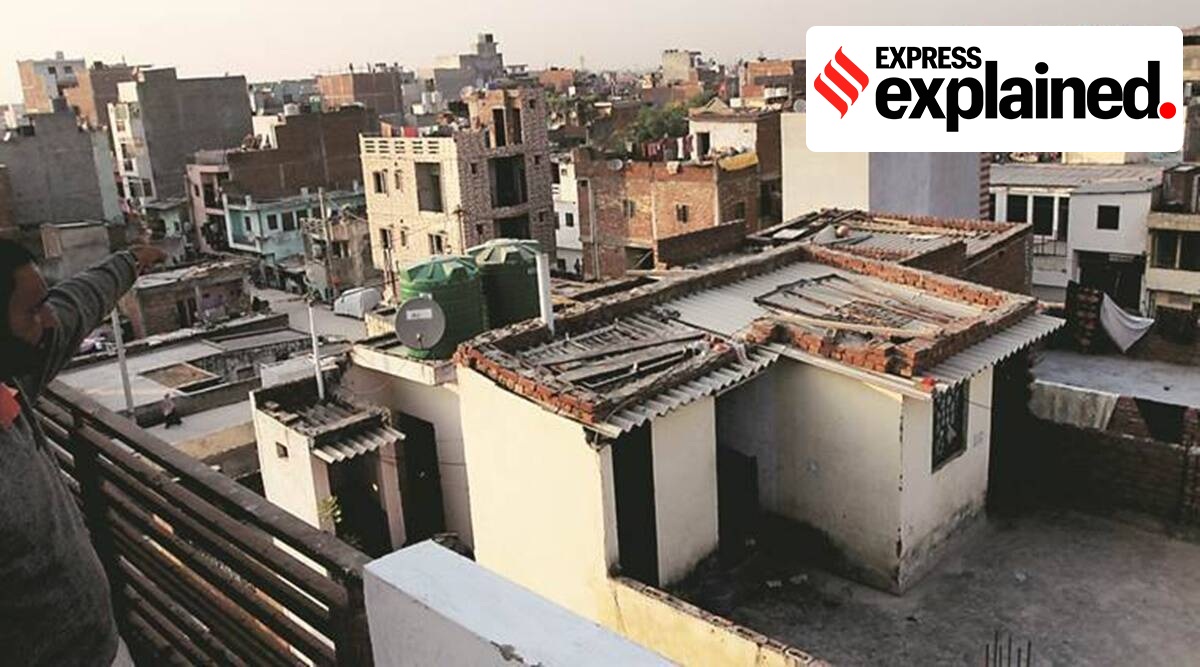What’s in Gujarat’s Bill to regularise illegal constructions statewide?
The Bill will regularise thousands of illegal real estate buildings constructed in the state before October 1, 2022. Is it unusual for the government to take such a step? We explain.
 Notably, the Gujarat government had earlier twice brought such a law to regularise unauthorised constructions in the state — in 2001 and in 2011. (Representational/File)
Notably, the Gujarat government had earlier twice brought such a law to regularise unauthorised constructions in the state — in 2001 and in 2011. (Representational/File) After the landslide victory in the Gujarat election, the BJP government in the state is scheduled to table ‘The Gujarat Regularisation of Unauthorised Development Bill, 2022’ as the first Bill in the new Assembly on Tuesday (December 20).
The Bill, which is expected to be introduced in the first session of the 15th Assembly, will regularise thousands of illegal real estate buildings constructed in the state before October 1, 2022.
Preparing for UPSC? Use CRACKUPSC20 code here to get an extra 20% discount on Indian Express subscription.
What are the reasons for tabling the Bill?
The government says that rapid urbanisation has led to an increase in the size and scale of urban settlements, which in turn has resulted in large numbers of buildings being constructed without permission or in contravention of the rules and regulations. The government feels that pulling down or altering the buildings on a large scale could possibly create law and order problems.
Such action could also result in “hardships to common man”, as a large number of people will be rendered homeless and will lose their livelihoods, the government argues.
The proposed law — which will replace an Ordinance promulgated in October 2022 ahead of the Assembly elections — will regularise unauthorised buildings and structures in cities across the state upon payment of a compounding fee.
Is it unusual for the government to take such a step?
In 2001 and 2011 the government had enacted similar legislation to regularise unauthorized development in the state. The 2001 legislation sought to regularise illegal constructions that happened before November 22, 2000, while the 2011 legislation regularised constructions made before March 28, 2011. This is the third time in a little over two decades that the government is bringing a law of this kind.
The government argues that the laws in the past “did not provide desired results and a large number of buildings have not been regularised and still remain without BU (Building-Use) permission.”
Although the government has never gone public with the total number of illegal constructions regularised in Gujarat over the last two decades, in 2018, Vallabh Kakadiya, then MLA from Rakhial, said that 80 per cent of the real estate construction on a 16-kilometre stretch between Naroda and Nikol in the eastern part of Ahmedabad city were illegal, and that the government was trying to legalise them.
What kinds of illegal real estate constructions can be regularised?
As per the Bill, all unauthorised development in Municipal Corporation areas, municipality areas and development areas of the state will be covered. Illegalities with regard to margins, built-up area, the height of the building, change of use, covered projections, parking, sanitary facilities and common plots can all be regularised.
The fee charged for regularising the illegal constructions will be credited to an Infrastructure Development Fund. The “impact fee” in the fund shall be used to augment, improve, or create infrastructure facilities, including those for fire safety, parking, and improvement of the environment. Such a fund was part of the 2001 and 2011 laws as well.
Are there any constructions that cannot be regularised?
Unauthorised constructions on land belonging to the government, local authority or a statutory body, or if it has been allotted by the government for any specific purpose; constructions on land under alignment of roads; those on land reserved under development plan or a town planning scheme; construction on land that is part of water bodies, water courses like tank beds, river beds, natural drainage; areas earmarked for purpose of obnoxious and hazardous industrial development and playground attached with an educational institution, cannot be regularised.
Permission for regularisation will also not be granted if FSI (Floor Space Index) in a zone is less than 1; if projections are beyond the plot boundary; or if a change of use may cause danger to health, and be a safety hazard.
Who will be the implementing authority?
The municipal commissioner or the chief executive officer of the Development Authority or chief officer of the municipality can be appointed as the designated authority, according to the Bill.
- 01
- 02
- 03
- 04
- 05






































